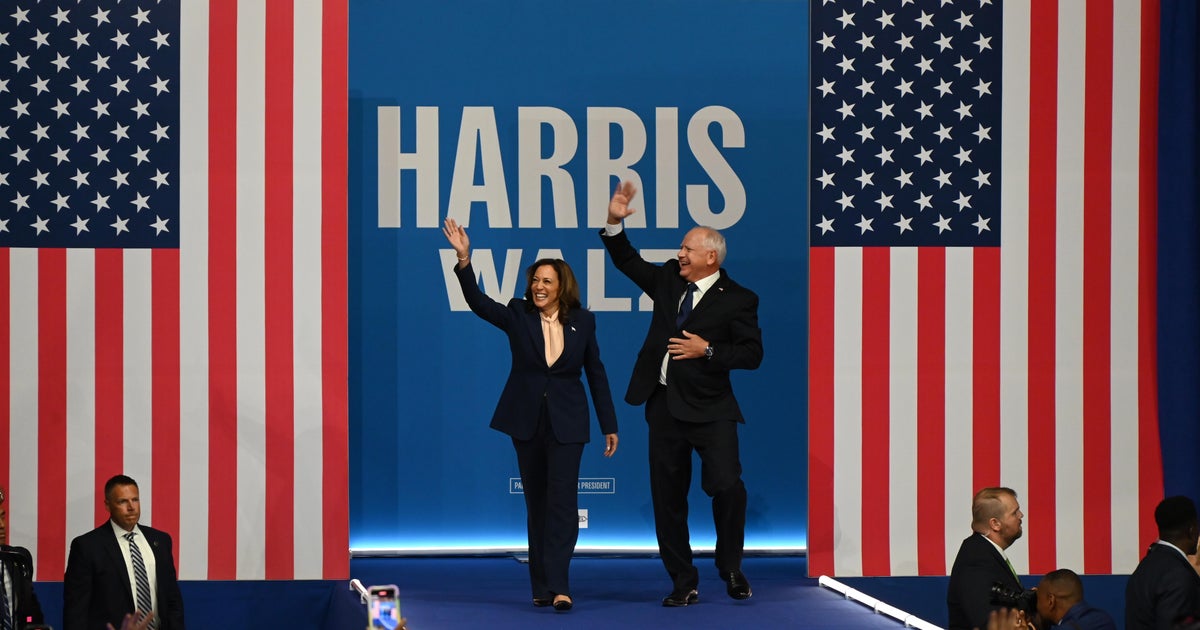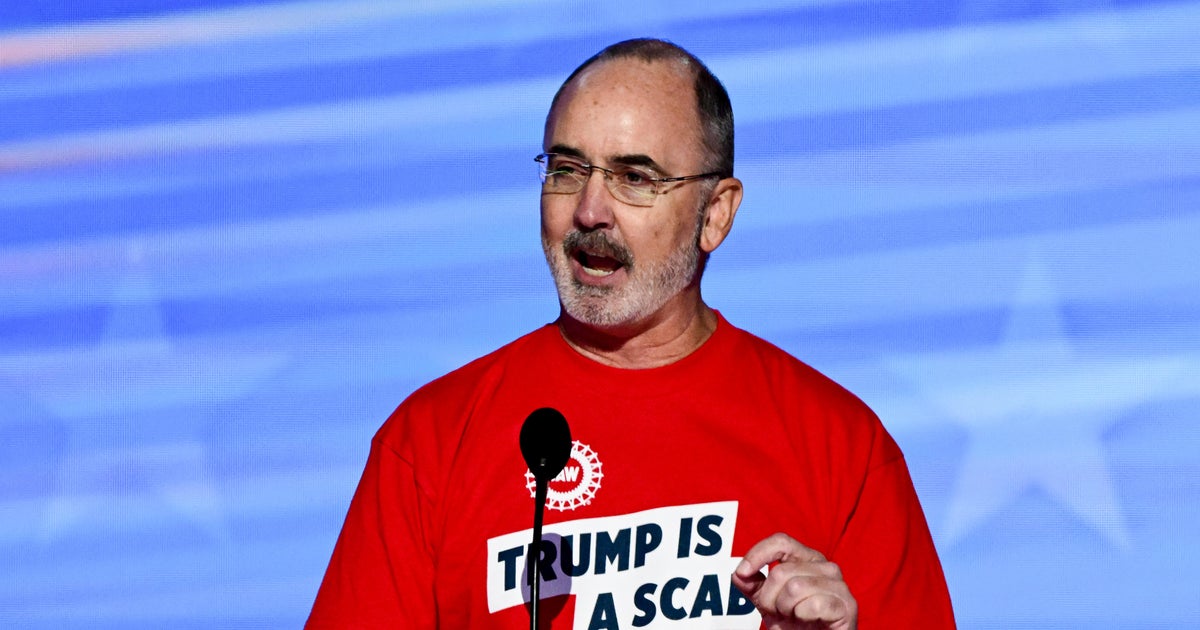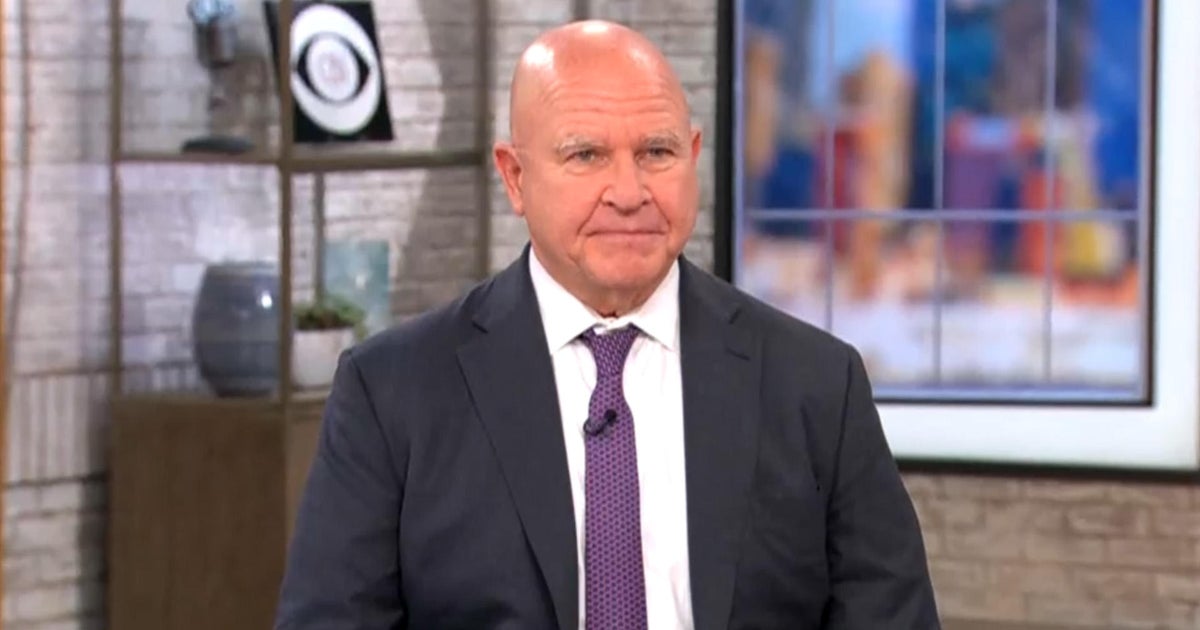Special counsel urges appeals court to revive documents case against Trump
Washington — Special counsel Jack Smith urged an appeals court Monday to resurrect the classified documents case against former President Donald Trump, writing the lower court's decision to toss the charges "deviated" from legal precedent and "took inadequate account" of history.
Smith submitted to the federal appeals court in Atlanta an initial brief defending his appointment as lawful and arguing U.S. District Judge Aileen Cannon's decision tossing out the charges against Trump and his co-defendants was wrong.
Cannon dismissed the indictment against Trump, aide Walt Nauta and Mar-a-Lago property manager Carlos de Oliveira in July after finding that Smith's appointment as special counsel violated the Constitution's Appointments Clause.
Trump has until Sept. 26 to submit a response to the special counsel's arguments.
In their filing, Smith and his team wrote that prior court decisions and history confirm the attorney general has the authority to appoint special counsels to carry out law-enforcement missions, as well as special counsel appointments by previous attorneys general and "Congress's endorsement of that practice through appropriations and other legislation."
"The attorney general validly appointed the special counsel, who is also properly funded," prosecutors said. "In ruling otherwise, the district court deviated from binding Supreme Court precedent, misconstrued the statutes that authorized the special counsel's appointment, and took inadequate account of the longstanding history of attorney general appointments of special counsels."
They said Cannon's "contrary" view that Smith was unlawfully appointed "conflicts with an otherwise unbroken course of decisions, including by the Supreme Court, that the attorney general has such authority, and it is at odds with widespread and longstanding appointment practices in the Department of Justice and across the government."
Prosecutors wrote that Cannon's decision "lacks merit" and argued Congress had authorized the appointment of special counsels by the attorney general. Smith's team pointed to a landmark Supreme Court ruling from 1974 – United States v. Nixon – as having established the "appointment authority" of the attorney general.
In that case, the Supreme Court ordered then-President Richard Nixon to comply with a special prosecutor's subpoena for tapes and documents in the Watergate scandal.
"Nixon conclusively defeats the defendants' challenge to the special counsel's appointment, as every other court to have considered the issue has found," Smith argued in his filing.
Steven Cheung, a Trump campaign spokesman, accused the Justice Department of mounting political attacks against Trump.
"As we move forward in uniting our nation, not only should the dismissal of the lawless indictment in Florida be affirmed, but be immediately joined by a dismissal of all the witch hunts," he said in a statement.
The documents case
Smith charged the former president with 40 counts stemming from his allegedly unlawful handling of documents bearing classification markings after leaving office in January 2021. Federal investigators recovered roughly 300 sensitive records from Mar-a-Lago, Trump's South Florida property, in 2022, including more than 100 that were seized when the FBI conducted a court-authorized search of the property that August.
Thirty-two of those documents underlie charges against unlawful willful retention of national defense information. Trump, along with Nauta and De Oliveira have also been accused of obstructing the Justice Department's investigation. The three pleaded not guilty.
Trump pushed to have the charges dismissed on numerous grounds, including claiming that Smith was unlawfully appointed and his office funded in violation of the Appropriations Clause. Cannon heard arguments on his request in June, during which she took the unusual step of allowing outside lawyers to participate in the proceedings.
The judge, who was appointed to the federal bench by Trump, granted the former president's request to dismiss the charges in mid-July and ordered the case closed.
"The bottom line is this: The Appointments Clause is a critical constitutional restriction stemming from the separation of powers, and it gives to Congress a considered role in determining the propriety of vesting appointment power for inferior officers," Cannon wrote in her 93-page decision. "The special counsel's position effectively usurps that important legislative authority, transferring it to a head of department, and in the process threatening the structural liberty inherent in the separation of powers."
Smith swiftly said he'd appeal Cannon's decision to the U.S. Court of Appeals for the 11th Circuit. The dispute over the constitutionality of his appointment is expected to wind up before the Supreme Court.
The special counsel's argument
In their filing, prosecutors defended Smith's appointment based on what they argued were historical and legal precedents and highlighted various statutes that they claimed Cannon incorrectly interpreted.
"Congress's annual appropriations funding these offices and officers confirm — and indeed ratify, if further ratification were necessary — the attorney general's power of appointment," the special counsel wrote, adding that the appointment they promote is "not unique to the Justice Department."
The filing warned that Cannon's ruling would have far-reaching consequences if allowed to stand, as it "needlessly casts doubt" on past appointments of Justice Department and Executive Branch officials. Adopting her interpretation of law, Smith wrote, risks "invalidat[ing] the appointment of every member of the department who exercises significant authority."
"At a minimum, that list includes high-ranking department positions such as the deputy solicitors general and the deputy assistant attorneys general," Smith and his team warned.
Beyond the Justice Department, the special counsel said the lower court's rationale would also raise questions about "hundreds" of executive branch appointments, including in the Departments of Defense, State, Treasury and Labor.
"The implausibility of that outcome underscores why the district court's novel conclusions lack merit," Smith's office wrote.
Cannon's ruling came weeks after Justice Clarence Thomas issued a concurring opinion in a separate case involving Trump, in which he questioned whether Smith's office was "established by law." The conservative justice, who was not joined by any other member of the court, wrote that further examination of the appointment should proceed before trial in that case.
Thomas wrote the opinion in a case arising from Smith's other prosecution of the former president over his conduct after the 2020 presidential election. Trump claimed presidential immunity and the case made its way to the high court.
"If this unprecedented prosecution is to proceed, it must be conducted by someone duly authorized to do so by the American people," Thomas wrote, notably addressing an issue not raised in the case. "The lower courts should thus answer these essential questions concerning the Special Counsel's appointment before proceeding."
Smith was appointed special counsel in 2022 to oversee the two federal investigations involving Trump — the probe involving his handling of sensitive government records and an investigation into his alleged efforts to subvert the transfer of presidential power after the 2020 election.
His selection was not unusual, as attorneys general from Republican and Democratic administrations have tapped special counsels in recent years to lead sensitive investigations. Several federal judges have rejected constitutional challenges to those appointments that were similar to Trump's. A three-judge panel on the U.S. Court of Appeals for the District of Columbia Circuit upheld Robert Mueller's appointment as special counsel in 2019, for example.
The 11th Circuit has already reviewed one of Cannon's rulings arising from Trump's handling of documents marked classified. In December 2022, a three-judge panel unanimously reversed her decision appointing an independent arbiter to sift through the material seized by the FBI from Mar-a-Lago during its search.
The decision from the three judges, two of whom were appointed by Trump, ended the so-called special master's review and allowed the Justice Department to use the documents taken from Mar-a-Lago in its investigation.
The special counsel has faced several setbacks in his cases against Trump, the Republican presidential nominee. In the prosecution arising out of the former president's actions surrounding the 2020 election, proceedings were delayed for months as Trump argued presidential immunity shielded him from federal charges.
The Supreme Court ruled in July that a former president is immune from prosecution for official actions taken while in the White House. The conservative majority found Trump can't face charges arising from some of the conduct alleged in the 45-page indictment — his discussions with Justice Department officials about overturning the election results — but left it to the U.S. district court judge overseeing the case to analyze the remaining accusations to determine whether they involve actions for which Trump is immune from prosecution.
Prosecutors from Smith's team and Trump's lawyers have until Friday to propose a schedule for moving forward in the case. Both sides are then set to appear before U.S. District Judge Tanya Chutkan, who was assigned to the case, for a hearing on Sept. 5.
Cannon's dismissal of the documents case, as well as the ongoing appeals court proceedings, and the delay in the 2020 election case mean Trump will not be tried in either prosecution before the Nov. 5 election.



